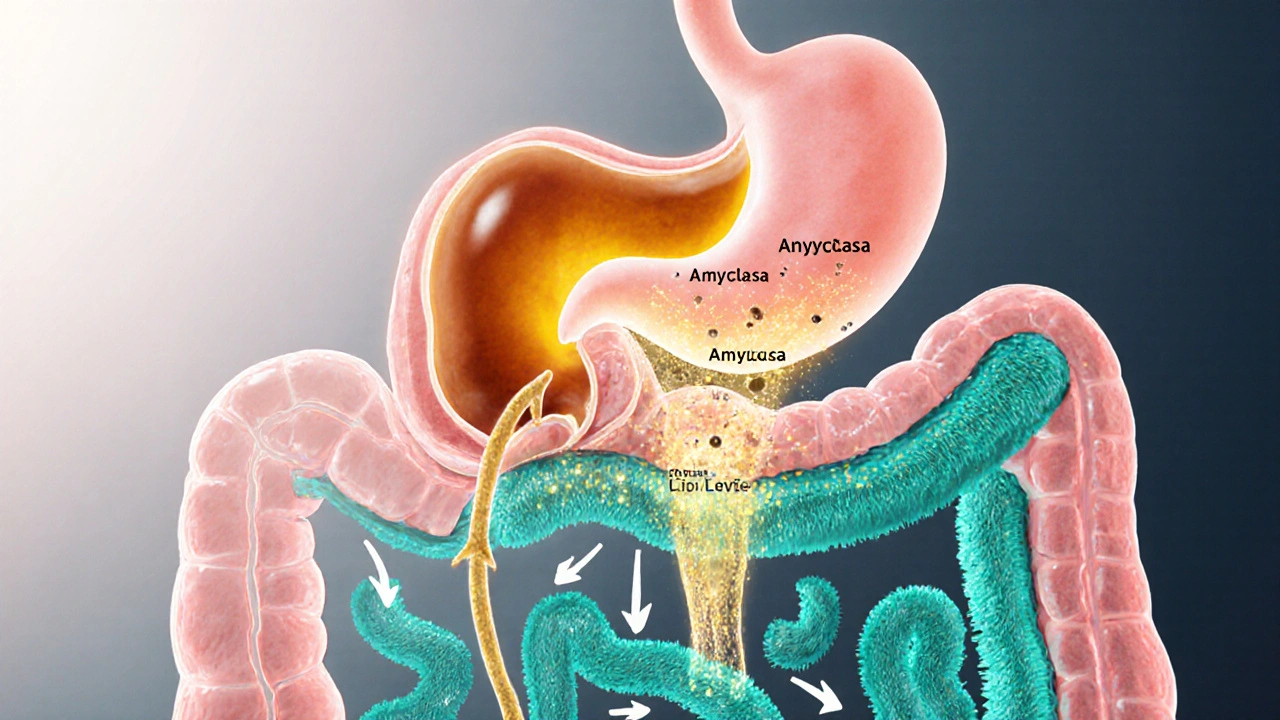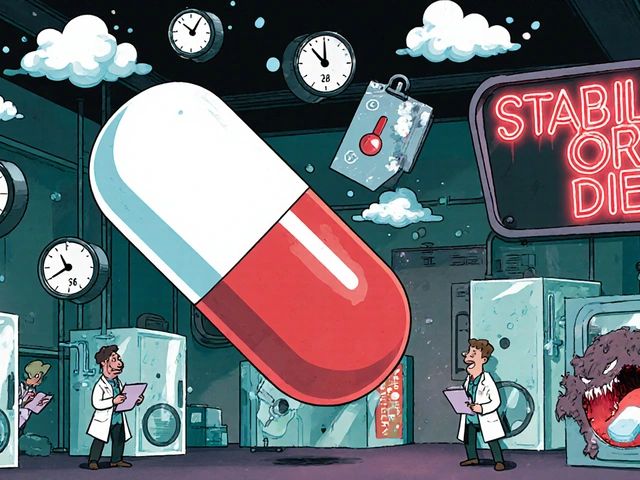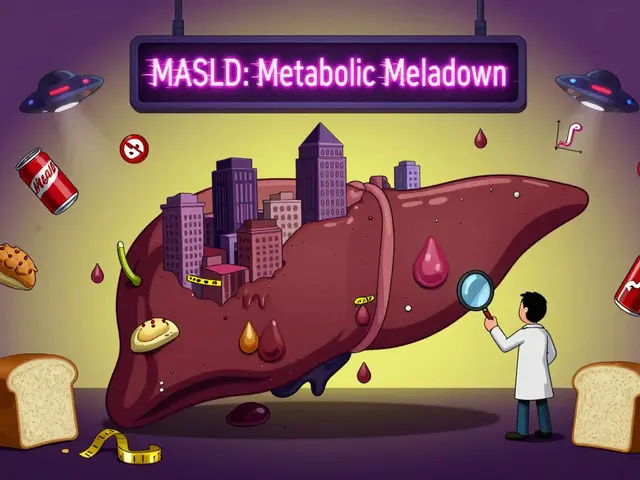Digestive Enzymes – Boosting Your Gut Health Naturally
When talking about digestive enzymes, proteins that speed up the breakdown of food in the stomach and intestines. Also known as enzyme supplements, they are essential for turning meals into absorbable nutrients.
One major group is pancreatic enzymes, a mix of amylase, protease, and lipase released by the pancreas. They handle carbs, proteins, and fats respectively, enabling smooth digestion. When the pancreas under‑produces these enzymes, people may experience bloating, gas, or nutrient gaps. That’s where enzyme replacement therapy steps in, delivering the missing activity directly to the gut.
Another key player is lactase, the enzyme that breaks down lactose, the sugar in dairy. Lactase deficiency causes the familiar “milk‑shake stomach” symptoms. A simple lactase supplement can let dairy lovers avoid cramps without giving up their favorite foods.
Beyond pancreas and lactase, the gut hosts a host of other enzymes like protease, which splits proteins into amino acids. Adequate protease activity supports muscle repair and immune function. When protease levels drop, protein‑rich meals may feel heavy and cause lingering discomfort.
Why do these enzymes matter for overall gut health? The gut‑brain axis shows that poor digestion can trigger inflammation, mood swings, and even skin flare‑ups. By ensuring the right enzyme mix, you help maintain a balanced microbiome, smoother bowel movements, and better nutrient uptake. This connection forms the triple: digestive enzymes → efficient nutrient absorption → enhanced gut health.
Many conditions—such as chronic pancreatitis, cystic fibrosis, or age‑related pancreatic decline—drive enzyme deficiencies. In those cases, doctors often prescribe tailored enzyme blends, measured in units that match a meal’s size. For everyday folks, over‑the‑counter enzyme powders or tablets can fill gaps caused by stress, high‑fat diets, or occasional lactose intolerance.
Practical Tips Before You Pick an Enzyme Supplement
First, identify the symptom pattern: gas after carbs points to amylase, lingering fullness after protein hints at protease, while fatty stools suggest lipase shortfall. Second, check the label for enzyme activity units (e.g., IU for lipase). Third, consider timing—most enzymes work best when taken with the first bite of the target food. Finally, monitor how you feel; adjust dosage gradually to avoid over‑supplementing, which can sometimes cause diarrhea.Whether you’re managing a diagnosed deficiency or just looking to smooth out occasional digestive hiccups, understanding the role of each enzyme helps you choose the right product and use it smartly. Below you’ll find articles that break down specific conditions, compare popular supplements, and give step‑by‑step guidance on integrating enzymes into daily meals.

Why Digestive Enzymes Matter for Proper Food Absorption
Learn why digestive enzymes are vital for nutrient absorption, how deficiencies cause symptoms, and practical ways-through diet, lifestyle, or supplements-to keep your gut working efficiently.




